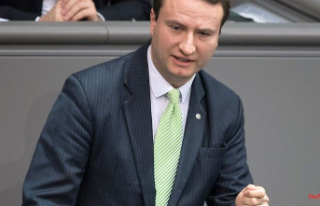In the third pandemic winter, Germany is experiencing an unprecedented wave of illnesses. Cough, runny nose, sore throat, flu or corona - in Germany an exceptionally large number of people are currently affected. According to data from the Robert Koch Institute, the mass of infections is due to an exceptionally strong and unusually early onset of flu and the RS viruses circulating in the population. The demand for medicines is correspondingly high. But in many pharmacies, a number of medicines are out of stock. The most important questions and answers about the bottleneck.
What medications are currently hard to come by?
Fever juices with the active ingredients paracetamol and ibuprofen, antibiotics, painkillers, antibiotics, anti-cancer drugs or even high blood pressure and diabetes drugs. The Federal Institute for Drugs and Medical Devices (BfArM) currently lists around 300 reports of supply bottlenecks - with around 100,000 approved drugs in Germany. However, this list only includes prescription drugs, and the reporting of delivery bottlenecks is voluntary. So the number could be even higher.
However, the authority emphasizes that there are alternatives for many scarce drugs. A delivery bottleneck does not therefore have to be a supply bottleneck at the same time. There are currently only around 10 reports on active ingredients that are critical to supply. In addition, the BfArM currently sees “no indications of a general acute deterioration in the supply situation in Germany”.
How common are drug shortages in Germany?
There are always bottlenecks in medicines in Germany. They are a nuisance for pharmacies because they have to find alternatives to medicines for patients or sometimes have to produce them themselves. However, this is time-consuming, expensive and not available for every pharmacy.
How did the bottleneck come about?
Pharmacies and trade unions see globalization as the cause of the bottlenecks. To save money, manufacturers rely on production in Asia. Around 68 percent of the production sites for active ingredients intended for Europe are produced in China or India, for example, according to the study by the pharmaceutical association vfa. If there are production problems, contamination or a production standstill, this also has consequences for the offer in Germany.
Why is the drug business in Germany not profitable?
Drug prices are regulated, and manufacturers cannot easily pass on higher costs to customers. In the case of prescription drugs, manufacturers must grant discounts to health insurance companies in discount agreements. In addition, there are fixed amounts as maximum amounts that the statutory health insurance funds pay for a drug. This should help to limit costs in the healthcare system and curb the increase in health insurance contributions.
What could be done about it?
Some experts are now bringing state production of vital medicines into play in Germany. After relocating to cheaper places, it was time for a rethink, said Christian Karagiannidis, a member of the government commission for hospital care, in the ZDF "Morgenmagazin". "We have to go the way of bringing the whole thing back. Perhaps we also have to discuss the fact that we need federal production facilities for vital medicines." You can also keep stocks, said the specialist in internal medicine, pneumology and intensive care medicine. One problem, however, is that many medicines have a best-before date and cannot therefore be stored indefinitely.
What are experts asking for?
The Association of Pediatricians has called on the federal government to act. "We now need a procurement campaign pushed by politicians in order to quickly get fever juice, certain antibiotics and other preparations for small children that have become rare, like at the beginning of the corona pandemic," said association president Thomas Fischbach of the "Rheinische Post".
What do politicians want to do about it?
The federal government is planning to change procurement law. The aim is to create supply chains more broadly so that the dependence on individual manufacturers decreases. The situation is unsatisfactory despite existing instruments for alternative preparations in the event of bottlenecks, said a spokesman for the Ministry of Health.
Minister Karl Lauterbach had already told the ARD capital studio at the end of November, with a view to the legislative plans, that health insurance companies should no longer be forced to buy medicines and active ingredients where they are cheapest. It cannot be "that we try to save a few cents on the active ingredients, but then risk supplying the population with it".
The Union is not fast enough. However, she calls for immediate action. "Before the end of the year there must be a procurement summit by the federal and state governments, in which immediate measures for this winter will be coordinated," said the health policy spokesman for the Union faction, Tino Sorge, the news portal t-online. Health Minister Lauterbach must coordinate “as soon as possible” with countries, manufacturers and wholesalers, seek temporary deliveries from neighboring countries and set up a planning and procurement team as quickly as possible, said Sorge.
When can an improvement be expected?
The problems have increased in recent months, said the chairman of the North Rhine Pharmacists' Association, Thomas Preis. "The situation is dire." Looking ahead to 2023, he says: "We expect supply deficits to increase." A spokesman for the Federal Union of German Associations of Pharmacists (ABDA) spoke of a "great challenge" that one has in view of the bottlenecks and that will remain in place for the foreseeable future.












